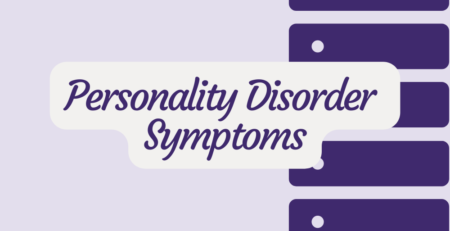Cluster C Personality Disorders: Diagnosis and Treatment
Most people have heard of borderline personality disorder, if only in passing. BPD is characterized by reckless behavior, mood swings and chronic feelings of emptiness and/or entitlement. Another symptom is alienating others, who frequently see only intolerable behavior and not an illness.
Such is the case with most “personality disorders”: primary symptoms include abnormal thought patterns, abnormal behavior and difficulty relating to others. Denial (“There’s nothing wrong with me—you’re being unreasonable”), an issue with most mental and behavioral illnesses, can be especially powerful.
Medically recognized personality disorders are grouped into three “clusters”: Cluster A (delusion-based), Cluster B (self-aggrandizing-based—borderline personality disorder is in this category) and Cluster C (anxiety-based). This article looks at Cluster C disorders and what can be done about them.
What Are the Cluster C Personality Disorders?
Cluster C disorders include:
- Obsessive-compulsive personality disorder (similar to the well-known obsessive-compulsive disorder, but while a person with OCD is troubled by obsessive thoughts and fixated on a relatively small circle of control, someone with OCPD is more likely to be obsessed with the idea that everything should be done their way)
- Dependent personality disorder (extreme fear of self-reliance and personal responsibility, often combined with enabling someone else’s abusive behavior)
- Avoidant personality disorder (extreme sensitivity to criticism and rejection, manifested in avoiding others whenever possible)
Besides anxiety and relational difficulties, all these involve keeping up specific “life management techniques” long after those approaches have proven toxic.
You are at higher risk if you have:
- A family history of personality disorders
- Childhood experiences of abuse or family dysfunction
- Certain brain-chemistry abnormalities
Diagnosis and Treatment
When personality disorder is suspected, the first thing to do is see an M.D. to pinpoint any undiagnosed physical conditions that may be contributing to behavioral abnormalities. The second step is assessment by a psychologist. Since the exact nature of personality disorders is highly variable, diagnosis requires a detailed review of:
- How you perceive yourself, others and the larger world
- How you react to disappointment or stress
- How you deal with other people and your own impulses
If you have a Cluster C personality disorder, your answers will likely include such perceptions as, “No one cares,” “I can’t make people listen” or “I lose my head when things go wrong.” Effective treatment requires long-term therapy (preferably including whole-family sessions).
What to Do After a Cluster C Diagnosis
If you’ve been diagnosed with a Cluster C personality disorder:
- Make a plan for facing up to anxieties. For example, if you have avoidant personality disorder, look for ways to practice trial-and-error activities in the company of one or two understanding people. (Never rush into too much too fast.)
- Know what circumstances could trigger a major anxiety episode, and plan in advance how to deal with these triggers.
- Find productive work that’s personally meaningful and low-stress.
- Take care of yourself physically: healthier bodies build healthier minds.
- Keep all your therapy appointments, even after you feel better.
- Get support from understanding family members and peers. (If you have dependent personality disorder, make an advance plan to avoid leaning on them too much.)
If a family member is being treated for a personality disorder:
- Offer practical support such as driving them to therapy appointments, but (especially with dependent personality disorder) don’t enable the illness by automatically catering to every whim.
- Stay patient, especially early on when the stress of change may seem to make things worse than ever.
- Compliment your family member for their efforts to improve, and when things go awry, talk about how you feel (“I’m upset,” not “You make me upset”). Hear them out when they talk.
- Allow yourself plenty of space for self-care. Keeping up your own resilience is vital to offering effective support.
- Know what warning signs indicate possible trouble, and know in advance how you will respond.
- Remind yourself that the worst won’t last and there’s hope for the future.
Help for Disorders of All Types
Personality and other mental disorders are legitimate illnesses and deserve to be treated as such, rather than serving as excuses to stigmatize or ostracize anyone. With proper treatment, it is possible to recover and live a normal, fulfilling life. Serene Behavioral Health offers residential and outpatient care for personality disorders, mood disorders, schizophrenia and PTSD, among other mental illnesses. To learn more, contact us and request a consultation.













